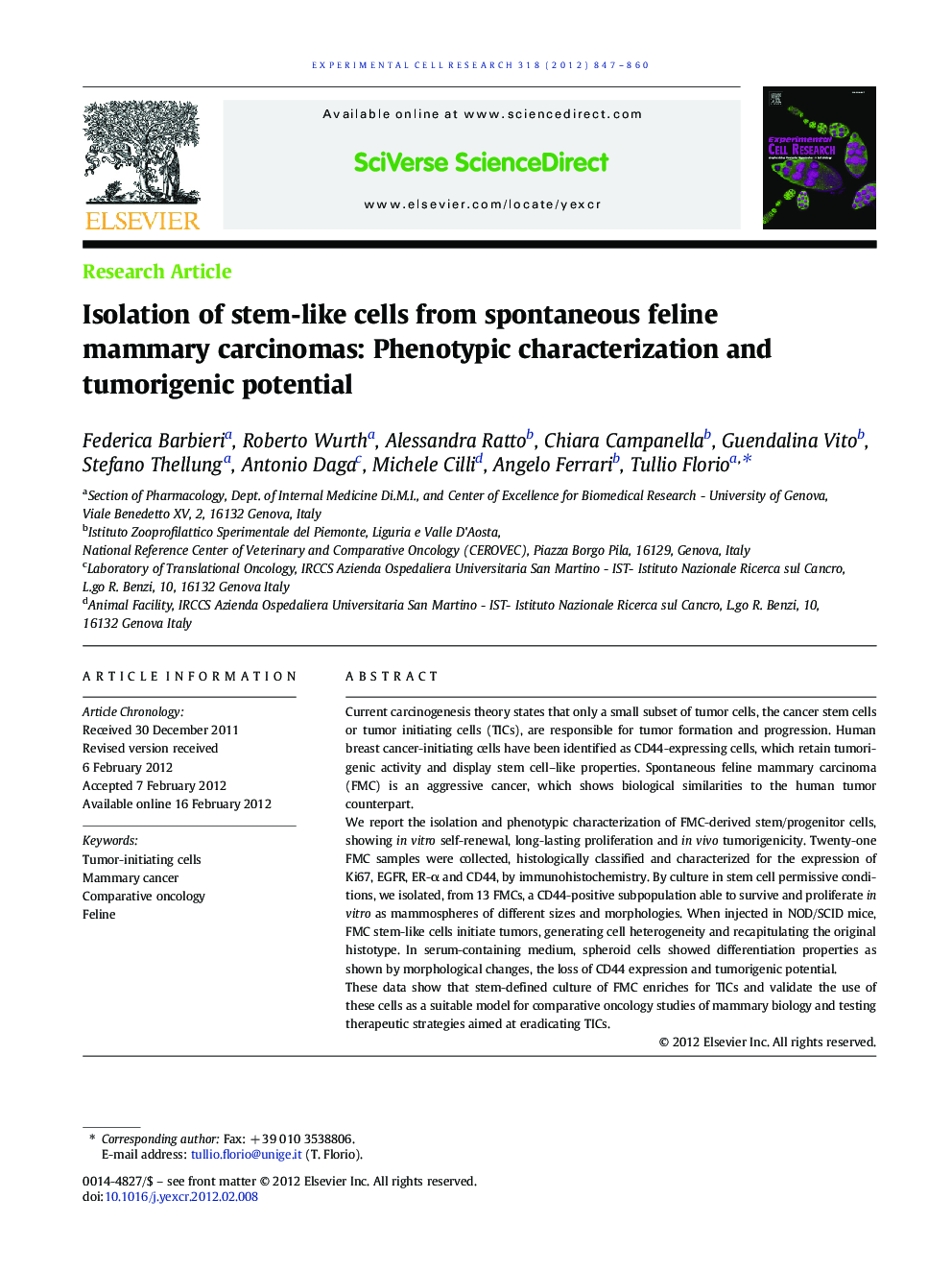| Article ID | Journal | Published Year | Pages | File Type |
|---|---|---|---|---|
| 2130691 | Experimental Cell Research | 2012 | 14 Pages |
Current carcinogenesis theory states that only a small subset of tumor cells, the cancer stem cells or tumor initiating cells (TICs), are responsible for tumor formation and progression. Human breast cancer-initiating cells have been identified as CD44-expressing cells, which retain tumorigenic activity and display stem cell–like properties. Spontaneous feline mammary carcinoma (FMC) is an aggressive cancer, which shows biological similarities to the human tumor counterpart.We report the isolation and phenotypic characterization of FMC-derived stem/progenitor cells, showing in vitro self-renewal, long-lasting proliferation and in vivo tumorigenicity. Twenty-one FMC samples were collected, histologically classified and characterized for the expression of Ki67, EGFR, ER-α and CD44, by immunohistochemistry. By culture in stem cell permissive conditions, we isolated, from 13 FMCs, a CD44-positive subpopulation able to survive and proliferate in vitro as mammospheres of different sizes and morphologies. When injected in NOD/SCID mice, FMC stem-like cells initiate tumors, generating cell heterogeneity and recapitulating the original histotype. In serum-containing medium, spheroid cells showed differentiation properties as shown by morphological changes, the loss of CD44 expression and tumorigenic potential.These data show that stem-defined culture of FMC enriches for TICs and validate the use of these cells as a suitable model for comparative oncology studies of mammary biology and testing therapeutic strategies aimed at eradicating TICs.
► Feline mammary carcinoma contain a sub-population of stem-like cells expressing CD44 ► These grow as spheres in serum-free medium and self-renew ► Isolated stem-like cancer cells initiate tumor in immunodeficient mice ► Xenografted tumors are phenotypically similar to the original tumor ► Upon differentiation, cells grow as monolayers, loosing the tumorigenic potential
